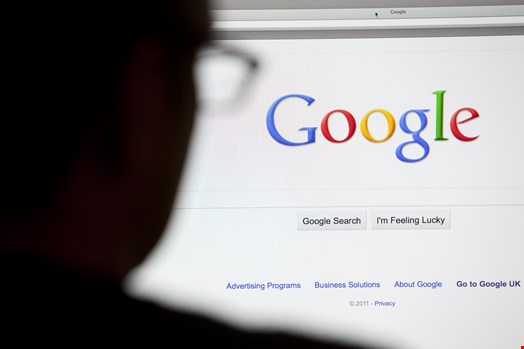Good alphabet soup, like a Scrabble board, has 26 letters just like the English alphabet. We use them to form words, sentences, thoughts, and ideas. But Google’s Alphabet is a murkier recipe – it is a parent holding company – for a behemoth data collection endeavor. Google co-founder and CEO Larry Page claims that he intends to use this ‘Alphabet’ for transparency.
But what’s really going on here? Transparency is just a mumbo-jumbo marketing term meant to excite Wall Street and lift stock prices into the heavens. That’s a capitalist story, not meant for everyday people who use Google or have an Android tablet to communicate via the real alphabet.
So how will the new Alphabet impact teens, tweens, moms and pops? I am not sure and based on Google’s history, that’s what scares me. The company tends to lay out broad strokes of an idea, with lots of wiggle room, to further invade our private world and profit off of the remains. Take the company’s current mission statement as an example:
“…to organize the world’s information and make it universally accessible and useful.”
That might sound aspirational and philanthropic, but on second blush it’s full of rouge. To organize the world’s information requires collecting it all, and I do mean all. That means all your personal information and mine, anything about you that’s online. And then there’s “universally accessible.” You mean with our information? Yep. At the end of the day, we’re their cash cow to make money with advertisers.

This may not sound like a big deal because most of this invasion happens underneath the surface of our lives. We neither see nor feel it, which is what makes it all the more dangerous. Our ancestors would take to arms and all other means to destroy such invaders. Yet the only way we know it’s there is when we get bitten, such as what happened with the security breaches at Target, Home Depot, Premera Blue Cross, and countless others.
Imagine the personal data trove Google – and hence the government, insurers, employers, educators, everyone – will have access to in the future. It’s there, to an extent that would amaze you. If you look at Google’s empire cumulatively, you get a sense of the bigger picture they’ve painted. Here’s but a small sample of the kind of information the company gathers about you:
- What you are doing online (Google Chrome)
- What you are doing offline (Android and Chromebooks)
- What you are doing at home and where you are within your home (Nest)
- What you are working on (Google Drive)
- Who you are connected to (Android, Gmail, Google+)
- Who you are talking to (Android, Google+)
- Who you are emailing (Gmail)
- What you are listening to (Google Play)
- What you are watching (YouTube)
- Where you are (Android)
- Where you are going (Google Maps and self-driving car)
- When you are going (Google Calendar)
- What you are looking for (Google Search)
In the real world, we call that stalking. In Google’s world it’s business as usual. Google didn’t stumble into this plan either. It planned for it. Take Gmail as an example. Google’s 2003 U.S. Patent for Gmail laid out a plan to read and collect information about every facet of your email including:
- The subject line
- Body text
- Sender name and/or e-mail address
- Recipient names and/or e-mail addresses
- Embedded information
- Linked information
- Attachments
- Information from other e-mails sent by the sender and/or received by the recipient
- Information from other e-mails having the same or similar subject text
- Geographic location of the e-mail sender and recipient
The list goes on and on. Granted Google didn’t have the capabilities to do half of these things in 2003. The scary part is that they aspired to one day, which is why the company wrote it all into its patent, and that day has arrived.

So what does Larry Page aspire to do with Alphabet? What I fear is what Page himself told the Financial Times last year:
“There is no model for the kind of company Google wants to become.”
I think he’s right. Outside of the decades-ago McCarthy hearings, there is no model in the entire US history for such invasiveness into our lives. You’d have to go to a communist country or North Korea for that kind of gameplay. In fairness, I know Page meant to say Google is a trailblazer. But with cryptic statements such as those above, he leaves the door open to push boundaries of privacy and data collection that we may not be able to push back against and regulate.
Remember the company’s mantra: ‘Don’t be evil?’ Well there’s a big difference between ‘do good’ and ‘don’t be evil’. Playing with and eroding human principles of privacy is at the very least a bad idea, and it is hard to image how they miss the evilness of it. We are at a crossroads in the privacy revolution and we must turn down the right path. Google and any other company for that matter can change their names as often as they want. But there’s a real fly in this Alphabet soup.
About the Author
Mark Weinstein is one of the USA's leading social media and privacy experts and CEO of MeWe.com. Mark is a founder of social networking, a leading privacy advocate, and author of the award-winning Habitually Great book series. He writes a technology column for The Huffington Post, and has been featured on CNN and Fox News
